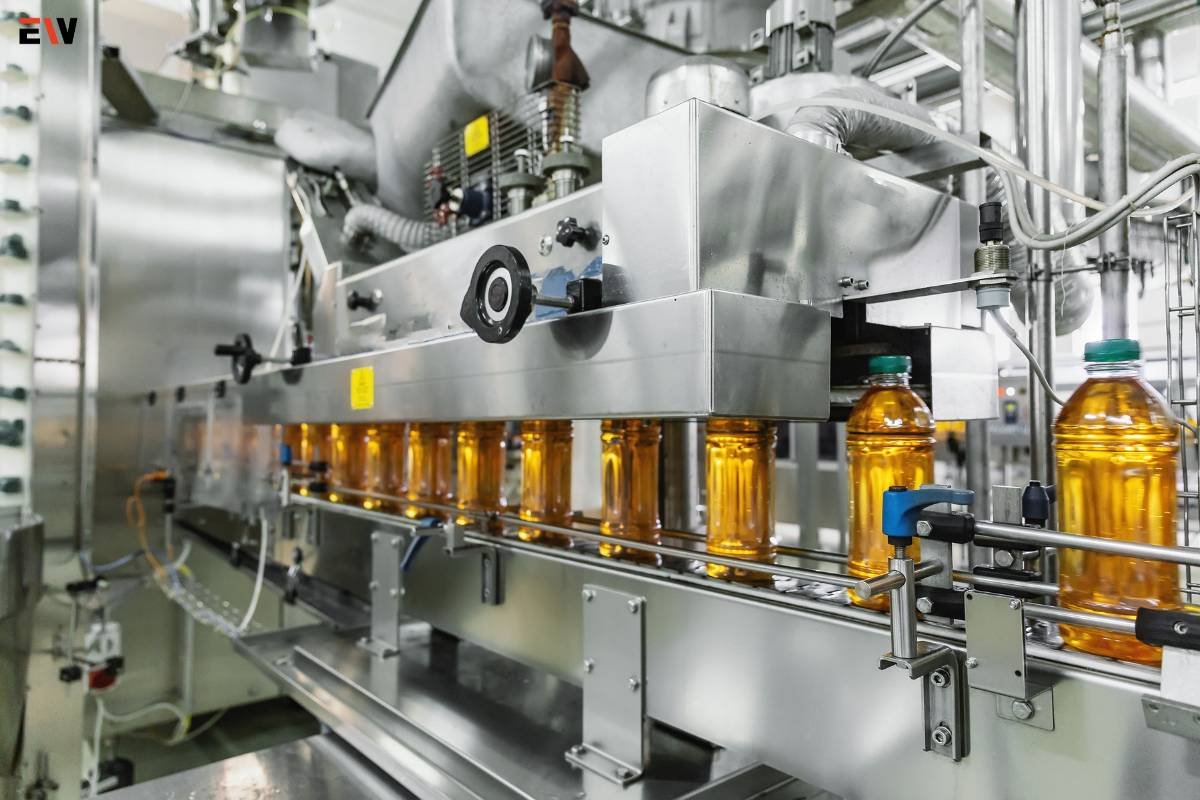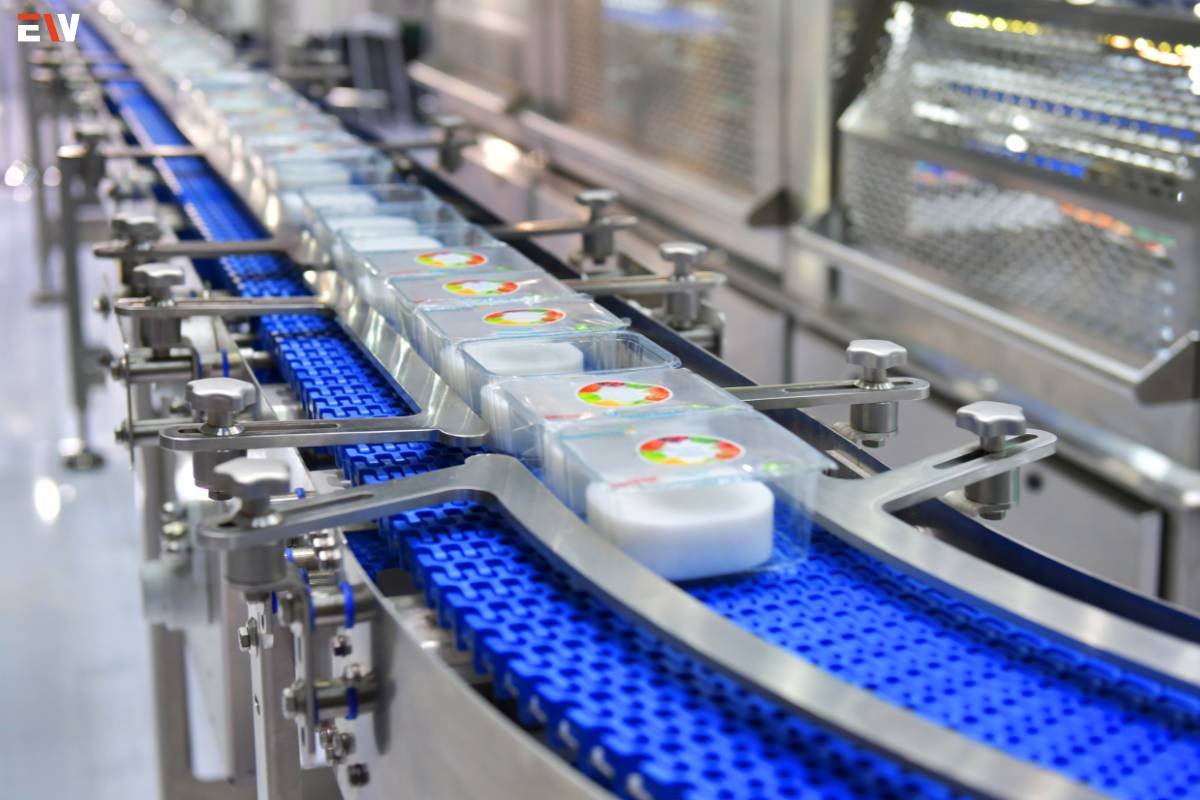In the realm of modern manufacturing, the term “Flexible Manufacturing Systems” has become a cornerstone, revolutionizing the way industries approach production. This comprehensive guide delves into the intricacies of Flexible Manufacturing Systems, shedding light on its core principles, applications, and the transformative impact it imparts on the manufacturing landscape.
Understanding Flexible Manufacturing Systems
1. Defining Flexible Manufacturing Systems
Flexible Manufacturing Systems (FMS) represent a sophisticated approach to manufacturing that integrates computer-controlled machines, automation, and advanced technologies. FMS enables the seamless adaptation of production processes to accommodate varying product specifications, thereby enhancing efficiency and responsiveness.
2. The Core Components of FMS
At its essence, a Flexible Manufacturing System comprises interconnected machines, robots, and computer systems working in tandem. These components communicate and adapt in real time to produce diverse product types without the need for extensive reprogramming or reconfiguration.
3. Adaptive Automation
FMS embodies adaptive automation, where machines and processes autonomously adjust to changing production requirements. This adaptability allows manufacturers to efficiently handle fluctuating demand, frequent product changes, and dynamic market conditions.
4. Integration of Technologies
FMS seamlessly integrates various technologies, including Computer Numerical Control (CNC) machines, robotics, sensors, and Artificial Intelligence (AI). This convergence facilitates synchronized operation, data exchange, and decision-making, creating a cohesive and responsive manufacturing environment.
5. Real-Time Monitoring and Control
An integral aspect of FMS is real-time monitoring and control. Sensors and monitoring devices gather data on machine performance, product quality, and overall system efficiency. This data is analyzed to make informed decisions, optimize processes, and address potential issues promptly.
Benefits of Flexible Manufacturing Systems
1. Increased Production Flexibility

FMS empowers manufacturers to swiftly adapt to changes in product demand, design modifications, or new product introductions. The ability to reconfigure manufacturing processes without extensive downtime enhances overall production flexibility.
2. Reduced Setup Time
Traditional manufacturing setups often involve prolonged changeover times when transitioning between different products. FMS significantly reduces setup times by automating the reconfiguration process, allowing for quicker and more efficient changeovers.
3. Enhanced Efficiency and Productivity
The integration of automated systems and intelligent technologies in FMS leads to enhanced efficiency and productivity. The continuous flow of information and real-time decision-making optimize production processes, minimize idle time, and maximize throughput.
4. Improved Quality Control
FMS incorporates quality control measures at various stages of production. Automated inspection systems and sensors monitor product quality, ensuring consistency and compliance with predefined standards. This proactive approach minimizes defects and enhances overall product quality.
5. Cost Reduction
While the initial investment in FMS can be substantial, the long-term benefits often outweigh the costs. Reduced setup times, increased efficiency, and minimized waste contribute to cost savings over the life cycle of the system.
6. Adaptability to Market Changes
In today’s dynamic market landscape, FMS positions manufacturers to swiftly respond to market changes, customer preferences, and emerging trends. The adaptability of FMS ensures that production remains aligned with market demands, fostering competitiveness.
7. Resource Optimization:
FMS optimizes the use of resources by automating repetitive tasks, minimizing human intervention, and utilizing machinery more effectively. This resource optimization results in improved utilization of labor, reduced energy consumption, and better overall resource management.
8. Customization and Personalization
The flexibility inherent in FMS allows manufacturers to easily customize and personalize products. Whether accommodating unique customer requests or adapting to niche market demands, FMS enables the efficient production of customized products.
Core Components and Technologies in Flexible Manufacturing Systems
1. Computer Numerical Control (CNC) Machines
CNC machines are a foundational component of FMS, providing precision and programmability in manufacturing processes. These machines are capable of executing complex machining operations with high accuracy.
2. Robotics and Automation
FMS relies heavily on robotics and automation to streamline production. Robots handle tasks such as material handling, assembly, and even complex manufacturing processes, contributing to increased efficiency and consistency.
3. Sensors and IoT Connectivity

Sensors play a crucial role in FMS by collecting real-time data on machine performance, environmental conditions, and product quality. The Internet of Things (IoT) connectivity enables seamless communication between machines and systems.
4. Artificial Intelligence (AI) and Machine Learning
AI and machine learning algorithms are integrated into FMS for data analysis, predictive maintenance, and decision-making. These technologies enhance the system’s ability to adapt to changing conditions and optimize processes.
5. Computer-Aided Design (CAD) and Computer-Aided Manufacturing (CAM)
CAD and CAM software facilitate the design and programming of products within FMS. These tools enable efficient product development, simulation, and the generation of instructions for manufacturing processes.
Applications of Flexible Manufacturing Systems
1. Automotive Manufacturing
FMS has found extensive applications in the automotive industry, where the ability to adapt quickly to design changes and produce multiple models on the same production line is paramount.
2. Aerospace Industry
In aerospace manufacturing, where precision and flexibility are critical, FMS enables the efficient production of complex components and the adaptation to varying specifications.
3. Electronics Manufacturing
The electronics industry benefits from FMS by rapidly adapting to changes in product design, accommodating diverse product configurations, and optimizing production efficiency.
4. Consumer Goods Production
FMS is employed in the production of consumer goods, allowing manufacturers to respond swiftly to market trends, customize products, and efficiently produce a variety of goods.
5. Medical Device Manufacturing
In the highly regulated and rapidly evolving field of medical device manufacturing, FMS ensures the production of high-quality, customized devices while meeting stringent regulatory requirements.
6. Custom and Low-Volume Production
FMS is particularly advantageous in industries requiring custom or low-volume production runs, allowing for efficient production without the need for extensive retooling.
7. Textile and Apparel Industry
The textile and apparel sector leverages FMS for flexible and efficient manufacturing of clothing and textiles, adapting to changing fashion trends and consumer preferences.
8. Food and Beverage Production
FMS is increasingly making inroads into the food and beverage industry, enabling the automation of production processes, customization of products, and improved overall efficiency.

Challenges and Considerations in Implementation
1. Initial Investment and ROI Considerations
The implementation of FMS often involves a significant upfront investment. Manufacturers must carefully assess the return on investment over the system’s lifespan to justify the initial costs.
2. Integration with Existing Systems
Integrating FMS with existing manufacturing systems and technologies can be complex. Compatibility issues and the need for seamless integration require careful planning and execution.
3. Workforce Training and Skill Development
The adoption of FMS necessitates a skilled workforce capable of operating, maintaining, and troubleshooting advanced technologies. Investing in workforce training and skill development is crucial for successful implementation.
4. System Downtime During Implementation
The transition to FMS may require downtime for installation, testing, and training. Manufacturers must carefully plan for minimizing disruptions to ongoing production during the implementation phase.
5. Cybersecurity Concerns
With increased connectivity and reliance on digital technologies, FMS introduces cybersecurity considerations. Safeguarding sensitive data, intellectual property, and the overall system from cyber threats is paramount.
6. Scalability and Future Expansion
Manufacturers should consider the scalability of FMS to accommodate future expansion and changes in production volume. The system’s ability to adapt to evolving business needs is crucial for long-term success.
7. Maintenance and Reliability
Ensuring the reliability of FMS is essential for maintaining continuous production. Implementing proactive maintenance schedules and monitoring systems contributes to the system’s overall reliability.
8. Regulatory Compliance
Industries subject to regulatory requirements must ensure that FMS adheres to relevant standards and compliance measures. This is particularly crucial in sectors such as aerospace, automotive, and medical manufacturing.
Conclusion
Flexible Manufacturing Systems represent a paradigm shift in the manufacturing landscape, offering unparalleled agility, efficiency, and adaptability. As industries evolve to meet the demands of a dynamic market, FMS emerges as a strategic asset, enabling manufacturers to navigate complexities, respond to changes swiftly, and optimize production processes. Embracing the core principles of FMS, understanding its applications, and addressing associated challenges position manufacturers to thrive in the era of advanced manufacturing, where flexibility is not just an option but a strategic imperative.










